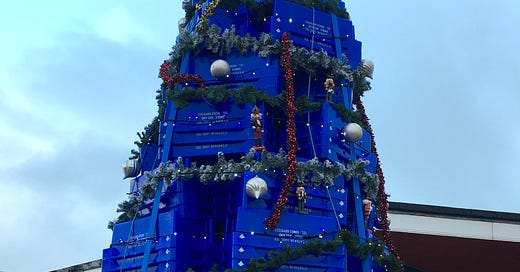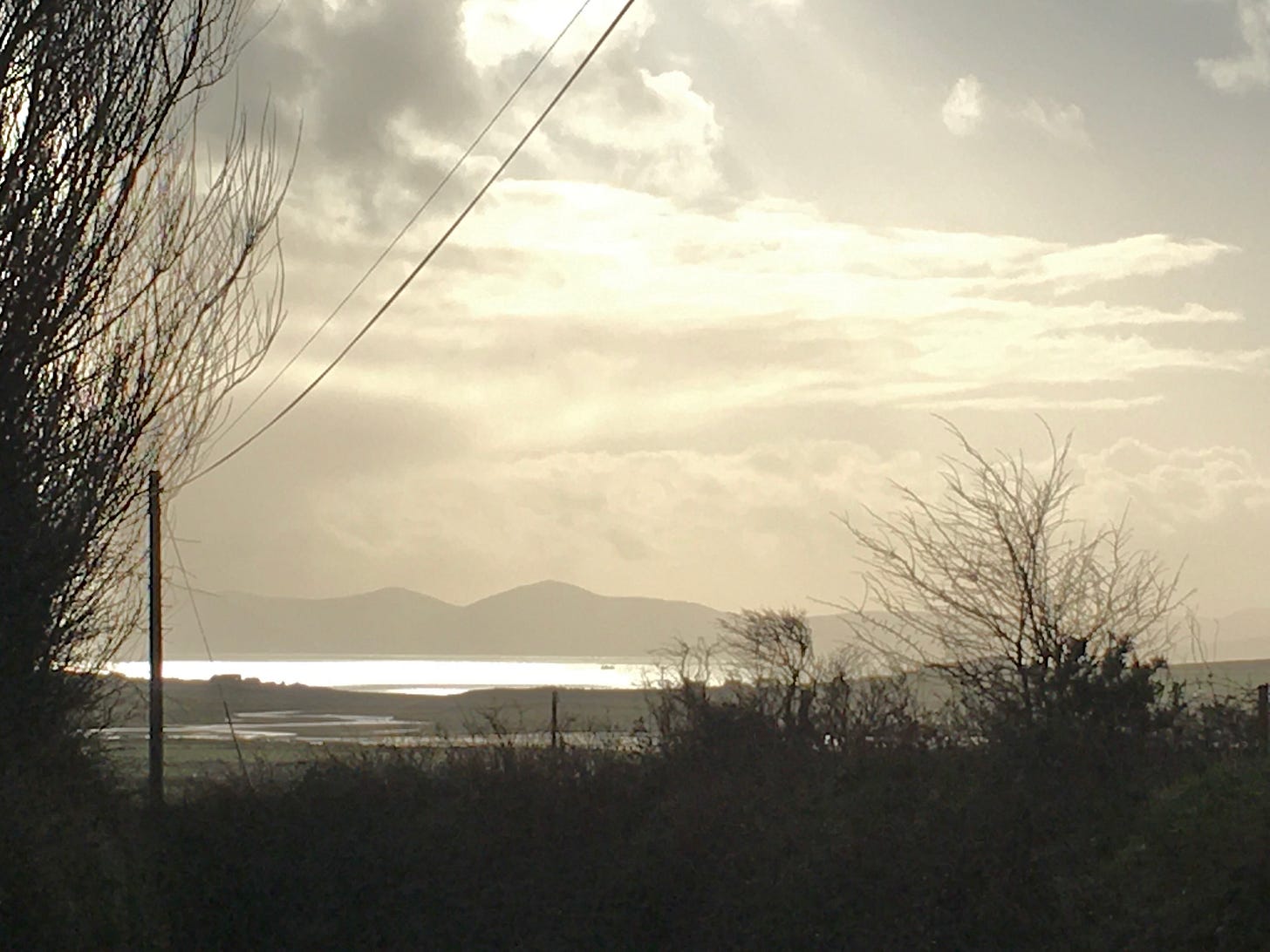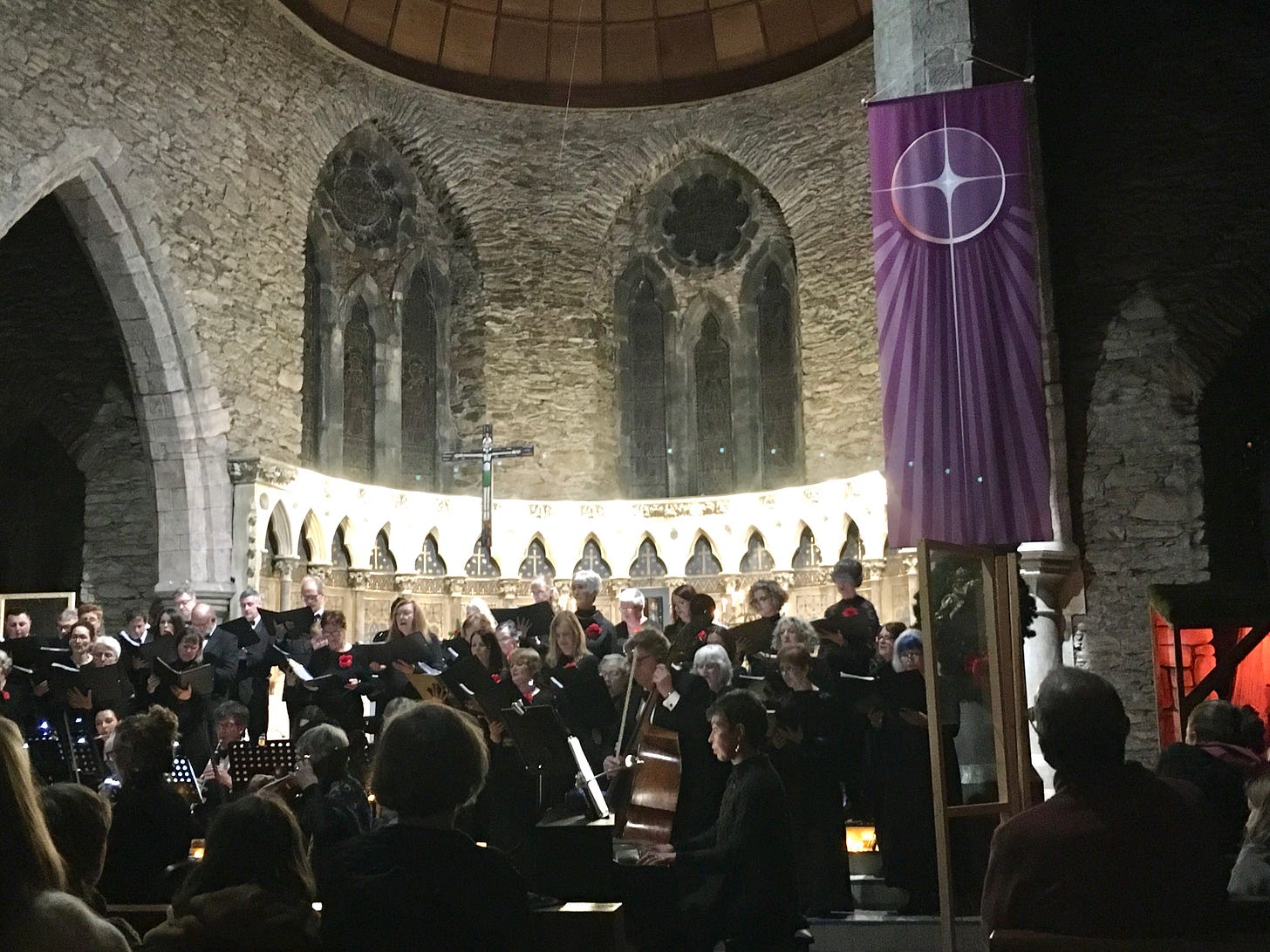A fish-box Christmas tree at the Dingle Sea Life Centre.
As another year comes to a close, it sometimes feels as if the world is full of darkness and that light will never shine again. Once again, wars and famine, violence and poverty dominate our culture – not to mention the avarice of Christmas consumerism and greedy overeating in which we will indulge for a few days. It feels as if something has gone wrong with our society: yet hasn’t it been this way for centuries? And often much, much worse.
The Winter Solstice seems to epitomise this all-pervading darkness that shadows the world. The sun stands still for three days (in Irish, this period is called An Grianstad, the “sun stop”), before sailing in the opposite direction to bring us the long days of Summer. Nowadays, we tend to see the Shortest Day in a negative way, with our Seasonal Affective Disorder and all our electric lights designed to keep the dark at bay. But our ancestors celebrated this time as being the beginning of the new year, not the end of the old. The darkness was part of the mystery; a pause for reflection, not something to avoid and fear.
Perhaps we need to pause with the sun and reflect on our own lives, and how we can help change our society for the better.
December light across Dingle Bay, looking to the Iveragh Peninsula.
Out in the countryside of the Dingle Peninsula, life carries on pretty much as it has for thousands of years. Farmers have taken their cattle into barns so they don’t churn up the wet fields and succumb to infections. Ewes are sporting yellow or red bottoms where they’ve been rubbed by the paste in a ram’s chest harness, showing they’ve been mated. It’s interesting that this ‘raddle’ powder (mixed with vegetable oil to a paste) has been used for thousands of years – it appears as “reddle” in Thomas Hardy’s 19th century novel Return of the Native, in which one of the central characters, Diggory Venn, sells red ochre that marks him as much as the sheep for which it is destined.
Early lambs often appear at Christmas, but perhaps they are indoors, out of the fierce gales and deluges we’re having at the moment.
The robin is singing joyously from the tops of the willows and thorn trees, and I can hear a thrush’s lovely music outside my window. Huge murmurations of starlings, rooks and jackdaws swirl across the sky when it is clear. At breakfast yesterday, a small flock of starlings lifted from the telephone wire but got caught by a gust of wind and scattered every which way like fallen leaves. My husband (such a card), said in a starling’s voice (I know you can hear it!): “Sorry about that folks; we’re normally much better than that!”
He (husband, not starling) has been playing his double bass in the Dingle New Music Orchestra and Choir, which puts on a few concerts each year. The first one last week in Ballyferriter was a bit memorable as, halfway through, the power went out, leaving the church in total darkness. There were no candles lit, so audience and singers tried to light the music for the orchestra with their phones as if it was an arena gig. The electric piano was out of commission, and the oboist fell over and sprained her wrist, so no oboe, either. They managed to struggle through, however, and everyone thought it a great adventure.
St Mary’s Church, Dingle, where the New Music Choir and Orchestra performed this year’s Christmas concert.
The second concert, this time in the Church of St Mary’s in Dingle, had a guest oboist and soprano, and the weather wasn’t as manic as last week, so there was electricity all the way through – and an appreciative audience of hundreds.
It’s wonderful that such a small town as Dingle, whose population fluctuates so much through the year, has an orchestra and two choirs, filled with many former professional musicians. It’s the same in the pubs, where traditional and contemporary musicianship at the highest level can be heard every night.
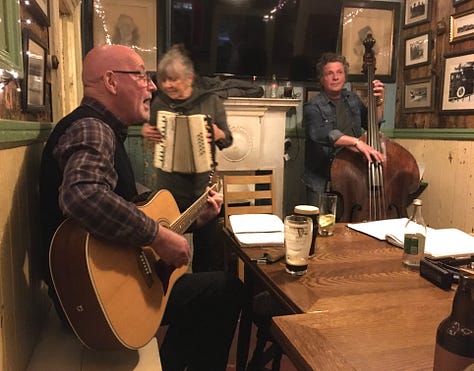
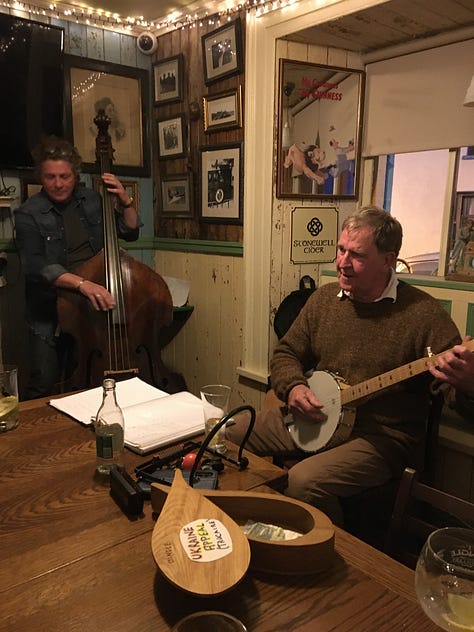
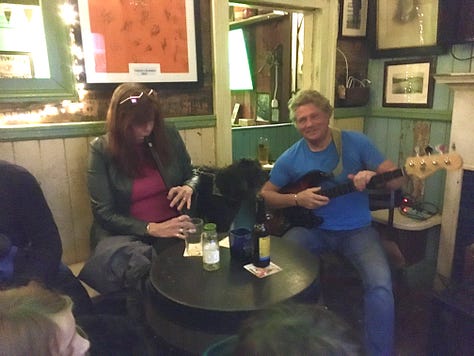
Musicians can be found in most Dingle pubs
I play low whistle and guitar and sing at one such pub, while Hubbie plays electric or double bass. At this quiet time of year (not including Christmas), sometimes the audience is only two old guys and a farting dog; other times the place is bursting at the seams with people joining in the songs with gusto. Come New Year’s Eve, all that enthusiasm will burst out on to the streets and continue into the wee small hours.
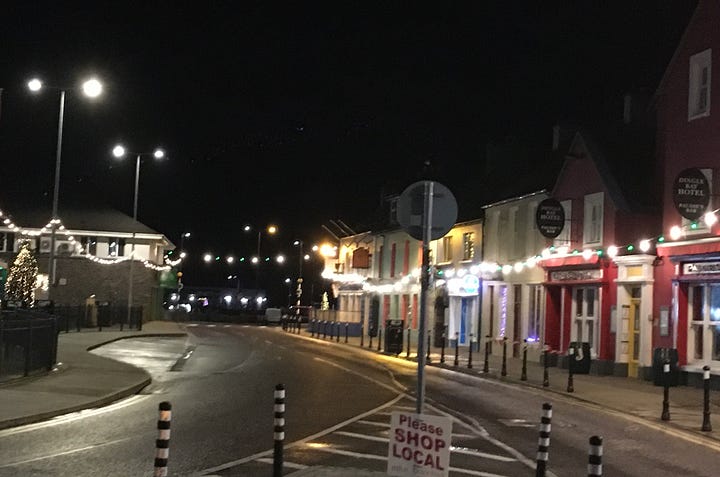
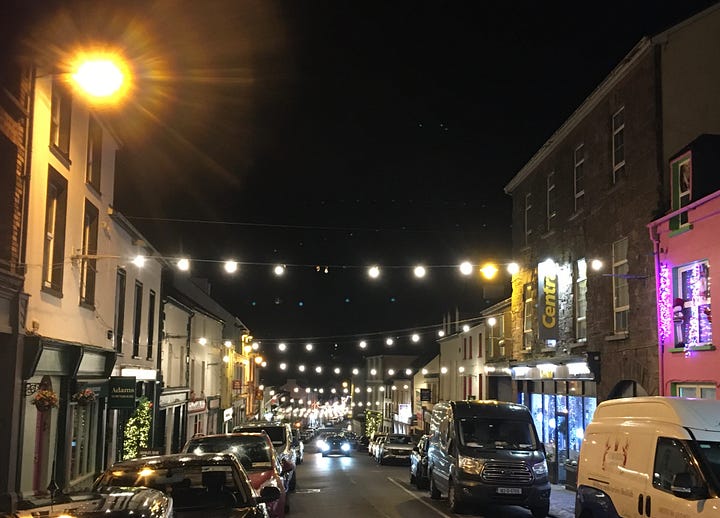
Christmas lights illuminating Dingle Harbour and Main Street.
So wherever you are, whatever you’re doing, here’s a wee dram to you all and
Nollaig shona dhuit, agus athbhliain faoi mhaise dhuit!
Merry Christmas and a Happy New Year!

